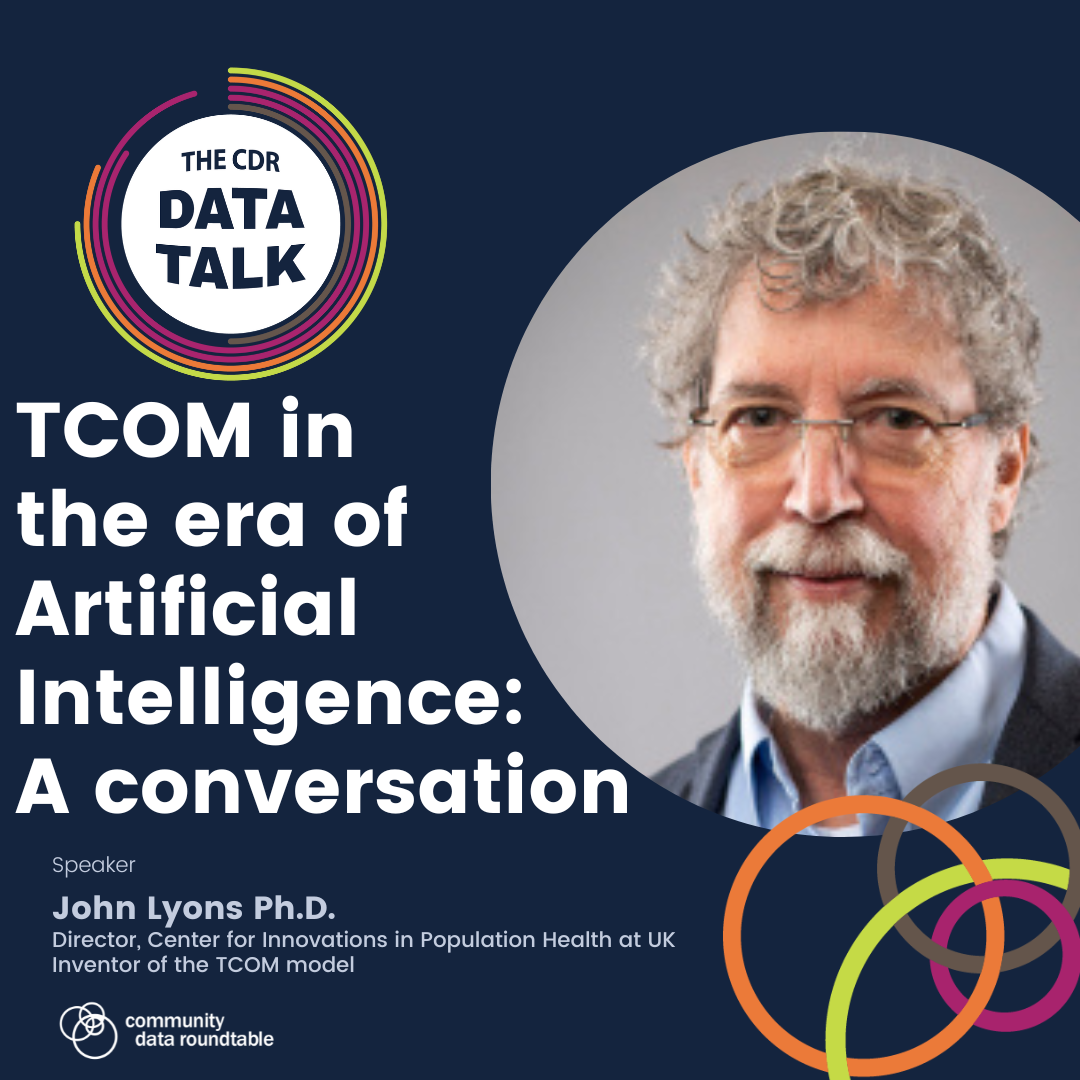At a recent Community Data Roundtable’s ‘Data Talk,’ Dr. John Lyons shared his insights on both the potential, and possible pitfalls, of emerging artificial intelligence technologies. John Lyons has been at the forefront of human services data for over 30 years. Among his relevant accomplishments are inventing the TCOM Assessment Suite (e.g., the CANS, ANSA, and FAST), developing the data science of communimetrics, and participating in large-scale implementations where his data and analysis are used in real-world scenarios. The topic of AI has become especially relevant to human services, given the most recent AI innovations. For example, The power of ChatGPT (a popular chatbot) is fascinating: it provides a nuanced scoring of most of the items, including more difficult notions like trauma responses and secondary gain behaviors.
While John has extolled the potential benefits of AI, such as improved precision with our public service system, he has cautioned that AI should not be allowed to operate independently of human intelligence. Dr. Lyons warns against “predictive analytics,” i.e. utilization of computer information systems to optimize certain predictions of individual fate. Structural inequalities of society can become hard-baked in such automated processes.
Instead, Dr. Lyons recommends AI tools for improved “precision.” He provided examples of programs that use AI to understand the nuances of a population and target interventions appropriately and timely. He also discussed the development of tools which can actively listen to clinical interviews and generate drafts of CANS ratings for client families and clinicians to review and utilize in treatment plan building. To experience the complete discussion on AI’s potential to consolidate our collective wisdom, click here to watch the recording on CDR’s website.

